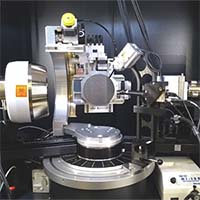 Researchers have refined an algorithm so that it works together with humans and supports decision-making processes. As a result, promising new materials can be identified more quickly.
Researchers have refined an algorithm so that it works together with humans and supports decision-making processes. As a result, promising new materials can be identified more quickly.
Tuesday, April 20, 2021
AI agent helps identify material properties faster
 Researchers have refined an algorithm so that it works together with humans and supports decision-making processes. As a result, promising new materials can be identified more quickly.
Researchers have refined an algorithm so that it works together with humans and supports decision-making processes. As a result, promising new materials can be identified more quickly.
Novel perovskite catalyst for lower CO2 emissions
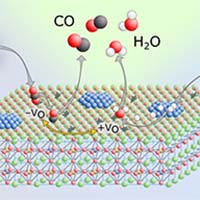 Perovskites have so far been used for solar cells, as anode materials or electronic components rather than for their catalytic properties. Now scientists have succeeded in producing a special perovskite that is excellently suited as a catalyst for converting CO2 into other useful substances, such as synthetic fuels.
Perovskites have so far been used for solar cells, as anode materials or electronic components rather than for their catalytic properties. Now scientists have succeeded in producing a special perovskite that is excellently suited as a catalyst for converting CO2 into other useful substances, such as synthetic fuels.
Insights into new 'dials' for controlling a material's magnetism
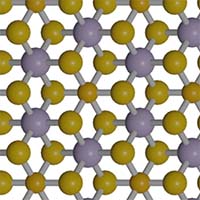 New research demonstrates how small amounts of strain can be used to control a material’s properties, with possible applications ranging from spintronic devices to faster hard drives.
New research demonstrates how small amounts of strain can be used to control a material’s properties, with possible applications ranging from spintronic devices to faster hard drives.
Bio-nanocellulose meshes improve hernia repair surgery
 Bacterial nanocellulose is an emergent biocompatible natural polymer with increasing applicability in the healthcare sector. A potential innovative application can be found in the design of surgical meshes for the treatment of abdominal hernias.
Bacterial nanocellulose is an emergent biocompatible natural polymer with increasing applicability in the healthcare sector. A potential innovative application can be found in the design of surgical meshes for the treatment of abdominal hernias.
2D nanomaterial MXene: the perfect lubricant
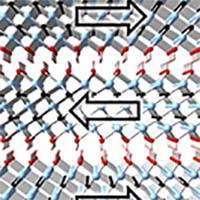 In extreme heat or in the vacuum of space: MXene delivers top performance in extreme situations.
In extreme heat or in the vacuum of space: MXene delivers top performance in extreme situations.
Going lower than the lowest computer energy consumption thought possible to defeat Boltzmann's tyranny
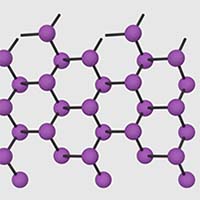 New research confirms the potential for topological materials to substantially reduce the energy consumed by computing.
New research confirms the potential for topological materials to substantially reduce the energy consumed by computing.
Subscribe to:
Comments (Atom)
